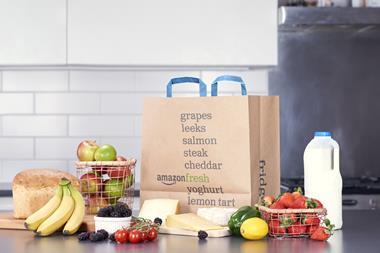PROMOTIONAL RESEARCH
Retail veteran Peter Williams and executives from Pandora, Bookshop.org and REN Clean Skincare reveal how they are witnessing spending habits shift – and what this means for their strategies – ahead of appearing at Consumer Week
The combination of rising prices and falling consumer confidence is a major concern for retailers and consumers alike. Inflation is at 9.1%, its highest rate in 40 years, with the Bank of England expecting it to hit 10% during the golden quarter. The Office for Budget Responsibility also expects a 2.2% decline in real household disposable income for 2022/23.
Retailers are facing rising costs and decreased sales as a result; Amazon, for example, reported that its shipping container costs for Q1 more than doubled compared to pre-pandemic rates.
However, with wage increases not keeping pace, the pressure is on retailers to absorb these costs and avoid passing them on to shoppers.
- Apply here to attend Retail Week’s free in-person Consumer Week summit on Thursday, September 29, from 8.30am to 11.30am, at The Form Rooms, London. Peter Williams and Bookshop.org join speakers from Deliveroo, Trinny London, Who Gives A Crap and more.
To understand how retailers can drive resilience against this backdrop, Retail Week spoke with industry executives to find out how they are reacting to consumer shifts.
1. Emotional > transactional
Pandora UK and Ireland sales director Ross Monaghan says the business is closely monitoring the state of the economy and is noticing how consumers are now more likely to spend if they receive personalised, emotionally-engaging shopping experiences:
“Jewellery isn’t something the average consumer purchases every day or every week, so it is slightly more challenging to assess the impact when compared to daily household spending. However, the trends we have seen previously show that consumers are generally more willing to invest in products that they have an emotional connection with,” he says.
“Pandora is a good example of this. Our products are centred around gifting and sentiment and will be given or worn during special lifetime events – this, coupled with the quality of our hand-crafted jewellery, our affordable price points, high level of consumer awareness, strong brand equity and loyal customer base, means our model is well placed against the headwinds.”
2. Doubling down on rewards and promotions
As a premium brand, REN Clean Skincare global head of ecommerce AJ Patel says the business is expecting consumers to buy fewer products and shop with the retailer less, which means a renewed focus on its loyalty programme.
He explains: “The ever-increasing cost of living means many of our customers are being more considered with how they spend their money. Over time, this may manifest as a lapse between purchases or smaller basket size; however, our priority remains to provide our customers and community with a uniquely REN shopping experience that aligns with our shared values.
“Loyalty and customer relationship management have become irreplaceable channels in delivering those experiences. Working with LoyaltyLion, we have been able to ensure that those who join our much-loved Clean Reward loyalty programme benefit from perks and promotions that make their next purchase more affordable but also offer them opportunities to engage with our brand when they’re not shopping. This helps us to maintain the valued customer relationships that will far outlast the cost-of-living crisis.”
3. Flexible ways to pay
Pandora’s Monaghan also highlights the need for retailers to make their offerings accessible by leaning on different payment options.
He says: “We are doing what we can to mitigate risks and help consumers where possible. In particular, we recognise that when someone shops with us they are often treating themselves or wanting to treat someone special in their life, so our priority is to ensure customers get the best experience and truly feel valued for shopping at Pandora – this is even more important during challenging conditions when we know disposable income is tight.
“We support customers through flexible payment options such as Klarna and Clearpay, which help to spread costs, and we have a number of product promotions throughout the year to offer customers the opportunity for even better value.”
4. A healthy overhaul
As chair of direct-to-consumer glasses brand Mister Spex, and former chair of Superdry, Boohoo, Asos and Domino’s, Peter Williams has overseen retail change and transformation. He believes retailers should embrace the opportunity to restrategise and overhaul their business operations.
“The after-effects that stem from the war in Ukraine, the pandemic and Brexit are already increasing costs to the consumer and dampening retail demand. Sadly, the economics will get worse before they get better. However, difficult times force businesses to re-evaluate their purpose and focus, which is healthy. Some don’t survive, especially in the fashion sector where there is a natural ‘culling’ process,” Williams says.
“The first time in my career that I experienced similar recessionary effects was in the 1990s as finance director at Selfridges. Every section of the Oxford Street store bar one recorded like-for-like declines for over a year. The only exception was cosmetics, where a new lipstick could provide moments of pleasure for a modest amount of money. At Selfridges, the recession led to the complete renaissance of the store, the merchandise offer and the brand, without which it wouldn’t exist today.”
5. Supporting communities
Indie-focused book retailer Bookshop.org has generated almost £2.3m for local UK book shops since its launch in November 2020. Its publisher and affiliate manager, Jasper Sutcliffe, says while the nature of giving back to the community has always been central to the business’ USP, it is now more important than ever.
He says: “Our mission at Bookshop.org is to make sure that we work with and not against local businesses that pay their taxes and support communities in these difficult times. These businesses work tirelessly to build connections with schools and community groups to make sure books get into the hands of as many children and adults as possible.
“For a few pence more in cost, the benefit to society is vastly increased. We want to offer a platform that allows people to actively support these community hubs when they’re not able to physically get to the shop.”

























No comments yet